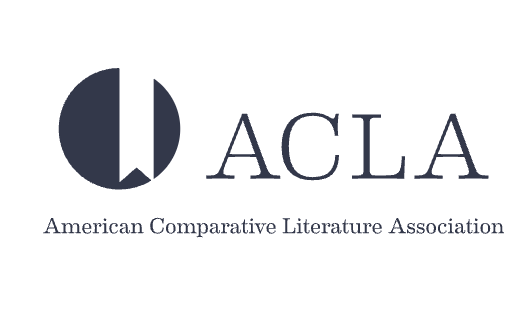
Language memoirs & linguistic autobiographies: the multilingual subject's self-narrative in comparative literature today (ACLA 2024, Montréal)
Presentations may be held in either English, German or French. Please submit your paper proposal before the 30th of September (no exception) directly through the ACLA portal (https://www.acla.org/language-memoirs-linguistic-autobiographies-multilingual-subjects-self-narrative-comparative) by clicking "submit a paper for this seminar".
—
This seminar seeks to explore whether self-narratives dealing with multilingualism are likely to challenge the heuristic foundations of comparative studies. If ‘multilingual subjects’ (Kramsch 2006) are capable of negotiating their own literary identity beyond any attachment to a specific national literature and language, what does this imply for the representation of multiculturalism in the arts and what is left to compare at the individual level? To what extent do multilingual autobiographers, by embracing several linguistic and cultural areas in their own life narrative, contribute to the reflective, transcultural stance comparative studies often seek to adopt?
Multilingualism in literature has been the concern of comparative literature at least since the 1970s (Forster 1970, Steiner 1975). For over three decades, scholars have not been confining themselves to studying novels and poems that mix languages. Heeding the growth of autobiography as a genre since the 1990s, they have imported the concept of "linguistic autobiography" from the field of language acquisition to explore memoirs in which language multiplicity is displayed.
When it comes to language memoirs, there seems to be two main areas of interest: firstly, scholars look at writers such as Hugo Hamilton, Elias Canetti or Emine Özdamar who stage their life either as traumatically torn between several languages, or benefitting from the cultural richness of a multilingual childhood. Another focus of research is the case of exiled writers who are compelled or called to write in a late-acquired language (Nancy Huston, Agota Kristóf, Hector Bianciotti). But are there other ways of describing the construction of one’s personality that goes beyond the focus on the chosen writing language (‘translingualism’ as described by Kellman 1991 & Ausoni 2018) or on the geographical displacement of the multilingual subject (the ‘exophony’ Arndt, Naguschewski and Stockhammer refer to in 2007)? Does the autobiographer’s level of fluency in each of their languages and/or the time of life at which their languages were acquired find an echo in the depiction of said languages in self-narratives? If there exists a heterolingual poetics, as Grutman and Suchet (2006 & 2018, both within the field of Francophone studies) argue – i.e. a specifically literary form of code-switching, how does this impact language memoirs ?
We welcome contributions from all linguistic and cultural areas. We understand self-narrative as encompassing any form of writing in which writers consistently attempt to represent themselves, with whatever degree of fictionalization (first- or third-person-narrative, autofiction, faction, autotheory…). One may examine generic-related definitional problems (language memoirs, linguistic autobiographies…), case studies of specific writers, and issues regarding self-translation.